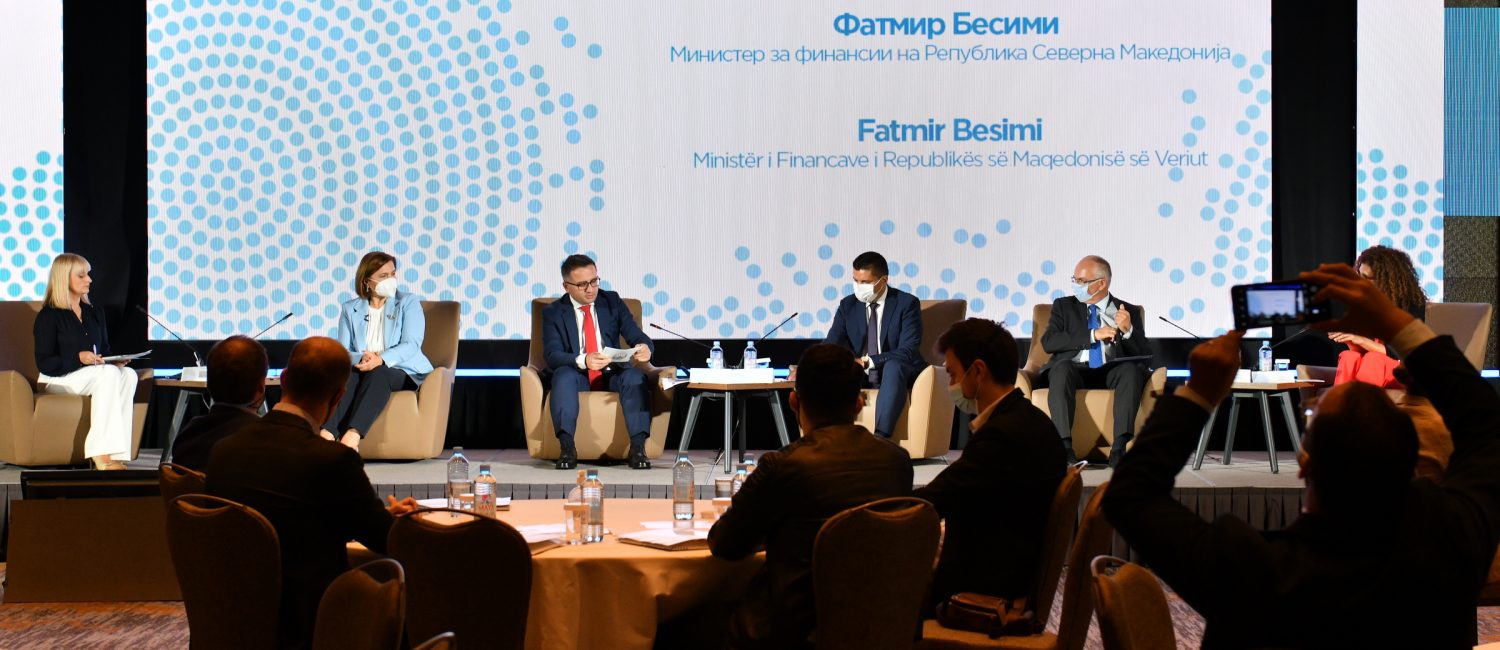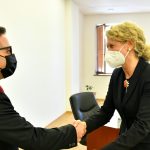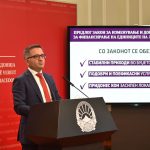22nd September 2021, Skopje – Recognizing and reducing informal economy in the country by precisely mapping out the sectors in which it is predominant, and identifying the main causes for its occurrence is the goal of the Support to Public Finance Management Reform Project, launched by the Ministry of Finance and the United Nations Development Program (UNDP) today. The main activities will focus on creating new and efficient tools to fight informal economy. Within the Project, both national and foreign experts are already working on a study defining the reasons and the indicators to reduce the informal economy.

“Undertaking steps aimed at reducing the informal economy is not enough by itself, unless we find a way to precisely measure the effects of such steps. Therefore, key aspect within the study is to develop indicators to measure the size and the incidence of informal economy in the country. Indicators to measure the level of informal economy will contribute to evaluating the steps undertaken to tackle it, which will, on the other hand, provide for continued applying of the measures that have yielded results, as well as modifying those that have failed to meet the expectations”, Minister of Finance, Fatmir Besimi, pointed out.
The Project will focus on practical actions and mechanisms in four priority areas: improving the process of measuring, monitoring and detecting informal economy, more effective inspection services, improved business environment for growth and development of the companies and raising the public awareness.
“Most citizens are not aware that the “invisible hand” of informal economy has direct adverse effect on the quality of their lives. For this particular reason, we at UNDP are strongly committed to supporting the efforts of the Government aimed at transforming the national public finance system and creating a favourable business environment contributing to reduction of the informal economy in the country”, Sanja Bojanic, UNDP Deputy resident Representative, said.
Support to Public Finance Management Reform Project will be implemented with financial and expert support by the Ministry of Finance of the Slovak Republic and the Slovak Agency for International Development Cooperation.
“The program is based on the experience of Slovakia in public finance reforms, in particular the persistent introduction of new and effective tools. As part of the program, we provide technical assistance, stemming from, above all, the Slovak experience, as well as the experience of the other countries, in particular in areas in which Slovakia has no sufficient expertise”, Henrik Markus, Ambassador of the Slovak Republic to the country.

Deputy Prime Minister in charge of Fight against Corruption, Ljupcho Nikolovski, underlined that suppressing the informal economy requires a serious and thorough approach, as well as creating measures and policies aimed at its eradication.
“Government’s Plan for Fight against Corruption includes measures which not only underpin the ongoing fight against corruption, but also significantly contribute to strengthening the business sector and the business relations within, creating conditions for uninterrupted functioning of the companies according to the market principles. The most recent measure we are working on at the moment is the Law on Origin of Property, a law to be adopted for the first time in our country. It is of significance for paving the way to confiscating illegally acquired property and it also reflects on the collection of taxes in the central budget. Should the property be legally acquired and declared to the competent institutions, the owners would pay all taxes and duties to the state, respectively leading to reduction of the tax evasion, Nikolovski underlined.
Minister of Labour and Social Policy, Jagoda Shahpaska, said they and the Employment Agency work together on labour market activation. On the basis of an individual plan for each employable person, prepared by the Social Work Centers together with the Employment Agency, and by virtue of retraining and additional professional education, we create conditions for each employable person, with the institutions’ support, to be assigned at an adequate working post which would provide for their livelihood and safety.
“By virtue of the Strategy for Formalization of Informal Economy for the period 2018 – 2022 and IPA “Improving the Working Conditions” Project, our goal is to encourage creation of new formal jobs, reduce undeclared jobs, as well as stimulate women to be active on the labour market. State Statistical Office registered continuous decline of the informal employment rate from 24.3% in 2011 to 13.6% in 2020, Shahpaska pointed out.
















